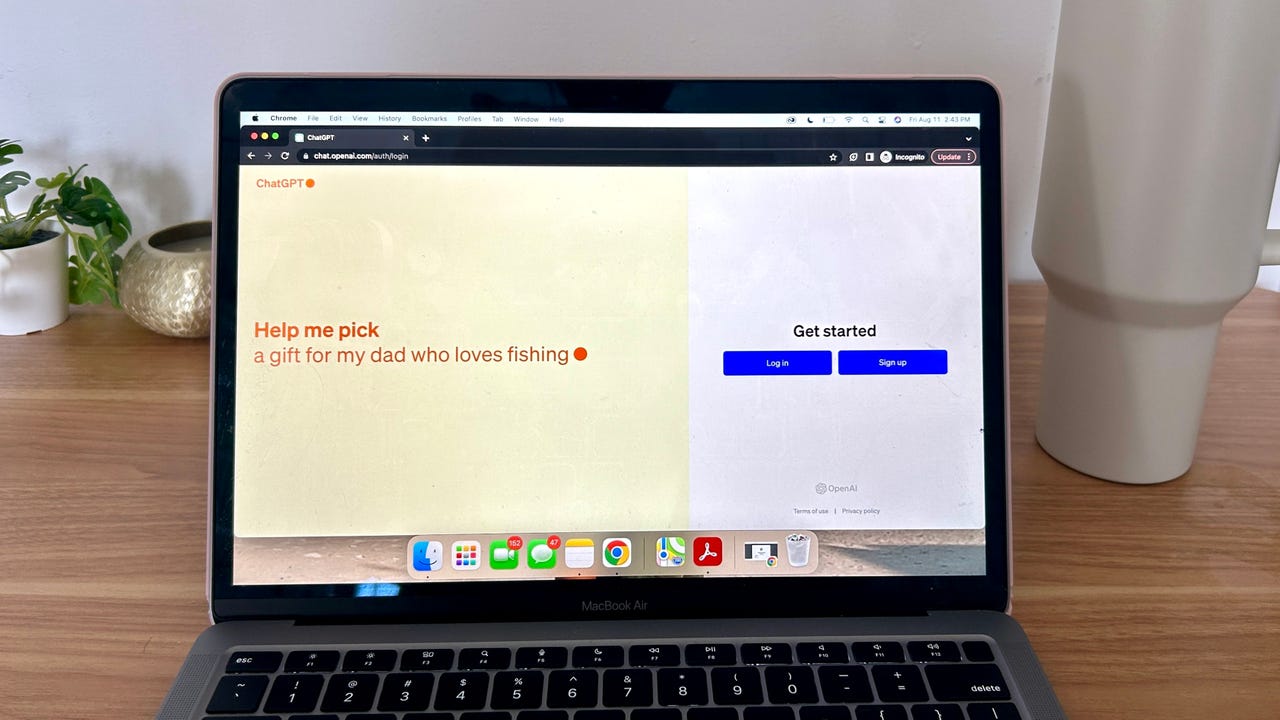'ZDNET Recommends': What exactly does it mean?
ZDNET's recommendations are based on many hours of testing, research, and comparison shopping. We gather data from the best available sources, including vendor and retailer listings as well as other relevant and independent reviews sites. And we pore over customer reviews to find out what matters to real people who already own and use the products and services we’re assessing.
When you click through from our site to a retailer and buy a product or service, we may earn affiliate commissions. This helps support our work, but does not affect what we cover or how, and it does not affect the price you pay. Neither ZDNET nor the author are compensated for these independent reviews. Indeed, we follow strict guidelines that ensure our editorial content is never influenced by advertisers.
ZDNET's editorial team writes on behalf of you, our reader. Our goal is to deliver the most accurate information and the most knowledgeable advice possible in order to help you make smarter buying decisions on tech gear and a wide array of products and services. Our editors thoroughly review and fact-check every article to ensure that our content meets the highest standards. If we have made an error or published misleading information, we will correct or clarify the article. If you see inaccuracies in our content, please report the mistake via this form.
How to use ChatGPT to summarize a book, article, or research paper

AI chatbots like ChatGPT can be used to make summarizing long articles, research papers, and books an easier job. If you're tasked with writing a summary for school or work about a body of written text, and you're pinched for time, ChatGPT can help you understand the necessary components.
You should remember that ChatGPT is a tool that can help you further understand a topic, and it may not be in your best interest to have it write your work for you.
Also: How to make ChatGPT provide sources and citations
If you're a student writing a research paper, someone who is keen to discover more about a lengthy article, or someone who wants to dive into a complicated subject, you can use ChatGPT to simplify the process.
How ChatGPT can create summaries for you
Materials needed: You'll need a device that can connect to the internet, an OpenAI account, and a basic understanding of the article, research paper, or book you want to summarize.
Also: This AI chatbot can sum up any PDF and answer any question you have about it
The process should take about one to three minutes.
1. Find your article, paper, or book to summarize
If you need ChatGPT to help summarize an article or research paper, find the body of text online and keep it open in a separate tab.
2. Open your web browser and log in to OpenAI
Open your web browser of choice and type in chat.openai.com/chat.
Also: How to use ChatGPT to write Excel formulas
Log in or sign up for an account.
3. Type your request
In the chat box, type in TLDR: followed by the title of the book you want summarized. TLDR stands for too long, didn't read.
Also: How to use ChatGPT: Everything you need to know
You can also ask ChatGPT: "Summarize [book title]."
You cannot paste a URL into ChatGPT. If you do so, you'll get a response explaining that the chatbot cannot access websites. If you want ChatGPT to summarize research, you'll need a basic understanding of the topic to ensure you aren't including inaccurate information in your report.
For example, if you're writing a paper about how twin sibling dynamics affect their marriages, you can ask ChatGPT: "Explain how twin relationships affect their marriages."
Also: The best AI chatbots: ChatGPT and other noteworthy alternatives
ChatGPT will offer you a few bullet points of both positive and negative effects a twin bond can have on the twins' marriages. You'll still need to read key points of the research, as ChatGPT won't provide you with specific statistics or scientific conclusions. But ChatGPT can help you understand the context surrounding the research you're interested in.
If you're having trouble comprehending specific passages in an article, book, or research paper, you can copy parts of the text and paste them into ChatGPT.
Think of this method as reshuffling the words you're currently reading to help you make more sense of the text in front of you.
This is an accurate summary of 'The Hunger Games: Mockingjay'.
FAQ
What are ChatGPT's limitations?
If you're using ChatGPT to summarize an article, book, or piece of research, keep in mind that ChatGPT isn't aware of events that occurred after September 2021.
Also: 4 things Claude AI can do that ChatGPT can't
ChatGPT is a large language model that uses queues and millions of data points to mimic human responses. This form of mimicry is why ChatGPT will answer questions even when it doesn't output the correct answer. So, make sure you're not using any information from ChatGPT without fact-checking it.
If you try to get around this obstacle and provide ChatGPT with an article that contains information post-2021, it might hallucinate. Here, I asked the chatbot to summarize an article about a new app I wrote about, and it made up a few details.
Lemon8 is a new app from TikTok's parent company, ByteDance. Although the TikTok trend may exist, that's not what the article is about.
Can ChatGPT summarize a PDF?
Copying and pasting a URL into ChatGPT won't yield you the best results. If there is a specific paragraph or sentence you're struggling with, you can copy and paste it into ChatGPT and ask it to explain it to you. Still, it's best to read the PDF and use the chatbot as a summary tool and not as an educator.
Also: How to use ChatGPT to write code
If you're looking for an AI chatbot that you can regularly rely on to give you an accurate summary of a PDF, consider using ChatPDF. You can summarize up to three PDFs of up to 120 pages per day, and an upgraded plan is available for $5 per month.
Can ChatGPT summarize an email thread?
Sort of. If you want to copy and paste every single email, ChatGPT can summarize the thread's contents for you. It would be more helpful to scan an email thread yourself and ask ChatGPT to help you write a response based on the key points you know about the conversation.
Editor's note: We've added additional context to the step concerning ChatGPT summarizing articles by URL.
